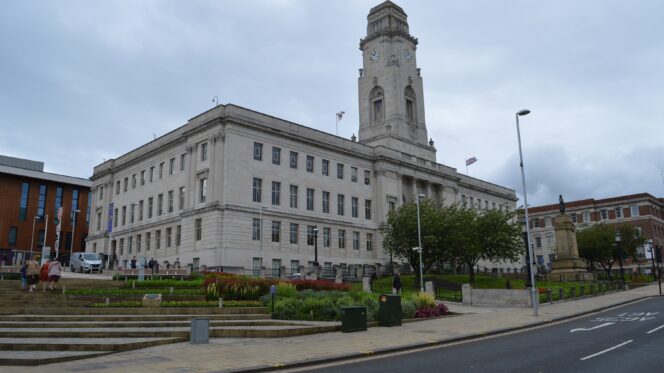Nigel Farage Is Making Voters a False Promise
‘Reform’ is a misnomer.
by Moya Lothian-McLean
12 June 2024

Newly reinstated as the leader of the Reform UK party, Nigel Farage has been on a tour of constituencies the party hopes to claim in the upcoming election. These include two seats in Barnsley, South Yorkshire, and that of Ashfield, Nottinghamshire, which I visited last Saturday. So what is Reform, and why is it cutting through with some voters? Let’s wade into the swamp.
Like all Farage-driven projects, Reform’s main pitch to voters revolves around immigration. This is Farage’s white whale. The nature of the ask shifts slightly depending on the political context (see moving from ‘leave the European Union’ to ‘leave the European Court of Human Rights’), but the goal is always the same: reduce immigration, whether that’s people applying for asylum, or migrants who already have the right to work in the UK. For Farage, even one person across the border is too many unless someone else gets deported for balance – or so he says. Given every one of his public relationships has been conducted with a woman who needs a visa to live in England, we must assume he’d allow some flexibility.
Reform isn’t just campaigning for net migration of ‘zero’, however. With the resurgence of the populist right over the last 14 years, new culture war issues have emerged which Farage and co are seeking to tap into. This is why Reform’s manifesto is a mix of Thatcherite economic policy – promises to reduce corporation tax and public spending – and pledges to immediately abandon carbon emissions targets while “accelerating” North Sea oil and gas licences.
The party is also promising bans on teaching “gender ideology” and “critical race theory” in schools, while simultaneously saying it would introduce “cancel culture fines” for universities, which begs the question of whether a Reform-led state would just be continuously issuing itself penalty notices over its own policies.
We aren’t going to see this manifesto enacted by Farage in 10 Downing Street, of course – at least not in this electoral cycle. But that doesn’t mean its ideas aren’t influential. Everything Farage – and he really is a one-man band – has wanted to achieve in politics, he has. Farage, perhaps more than any other British politician, has managed to move the dial of national politics without ever sitting in Westminster. He’s been helped along the way by successive figures who thought they could harness the forces he represents to support their own causes and aims. Instead, they’ve all found themselves skewered: May, Johnson, Sunak amongst others.
This is because Reform – and the Farage project in general – is a howl of discontent that never wants an answer. Goalposts are always shifting; Britain will never have enough ‘control’ of its borders to satisfy. Voters I spoke to in Ashfield near universally parroted concerns about immigration and “small boats” as explanations for why local towns had declining high streets or why life felt harder. This was regardless of a person’s voting intention, the fact that Ashfield is completely landlocked, or that the nation’s broken infrastructure is being held up by migrants.
There are clear answers and solutions to the question ‘why does nothing in Britain work?’. But they involve a large collective project, and buy in from a political class that favour doing the “(pseudo) ‘sensible’ over the necessary,” as climate activist Ami McCarthy recently observed.
Instead, Farage offers the seductive cloak of individualism and denial masked as collective action against a rotten elite. Reform’s platform is essentially shifting the blame for broken Britain onto a threatening Other – migrants, transgender people, and so on – who are completely invisible in the day to day lives of those most seduced by this message.
It’s far easier to rage at an unseen boogeyman than to invest in radical change and adaptation in order to weather the many crises facing us. Reform is a misnomer – and Farage’s party is selling its voters the false promise of everything staying exactly the same.
The article was adapted from our newsletter The Cortado. For more general election analysis straight into your inbox, click here.
Moya Lothian-McLean is a contributing editor at Novara Media.


